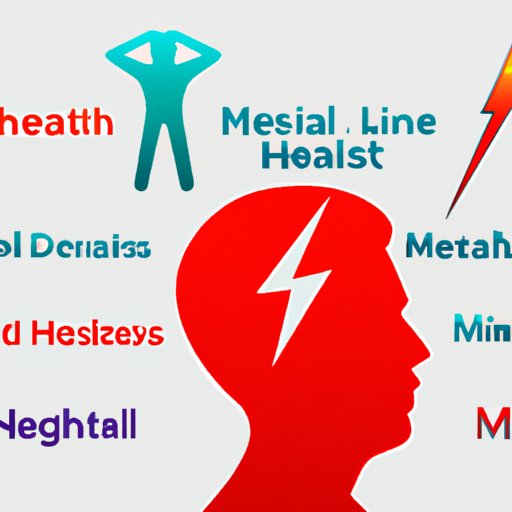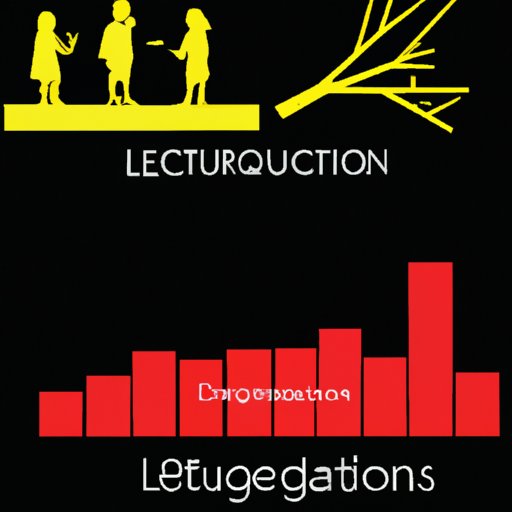Introduction
Technology has become an integral part of our lives, both in our personal and professional lives. This is especially true for children, who are now growing up with access to a wide range of digital devices and applications. While technology can provide many benefits to children, such as increased access to information and improved communication, there are also potential risks associated with its use.
This article will explore the potential negative effects of excessive technology use on kids. We will cover topics such as increased risk of cyber-bullying, negative effects on mental and physical health, impact on learning and education, diminished social interaction, exposure to inappropriate content, loss of imagination and creativity, and risk of online predators.
Increased Risk of Cyber-Bullying
Cyber-bullying is a form of bullying that occurs through the use of electronic communication or devices. It can take many forms, from sending hurtful messages or images, to spreading rumors or making threats online. According to a study by the Cyberbullying Research Center, approximately one in three adolescents have experienced cyber-bullying in their lifetime.
There are several factors that can increase the risk of cyber-bullying, such as anonymity, easy access to technology, and lack of face-to-face contact. These factors make it easier for bullies to target their victims without fear of repercussions. In addition, cyber-bullying can spread quickly and reach a larger audience than traditional bullying.
To help protect their children from cyber-bullying, parents should talk to their kids about the dangers of cyber-bullying and encourage them to speak up if they experience it. Parents should also monitor their children’s online activities and set clear rules and expectations around technology use.

Negative Effects on Mental and Physical Health
Excessive technology use can have a number of negative impacts on both mental and physical health. One of the most common problems is sleep deprivation, which can lead to fatigue, irritability, and difficulty concentrating. A study by the American Academy of Pediatrics found that children who used technology late at night were more likely to suffer from sleep disturbances.
Technology use can also increase stress and anxiety levels, as the constant notifications and pressure to stay connected can overwhelm users. Additionally, spending too much time on technology can lead to reduced physical activity, which can contribute to weight gain, poor fitness, and other health issues.
To minimize the negative effects of technology on mental and physical health, parents should create healthy boundaries around technology use. This includes setting limits on the amount of time spent on technology, encouraging regular physical activity, and establishing tech-free zones in the home.

Impact on Learning and Education
While technology can provide numerous educational opportunities for students, it can also have a negative impact on learning. Excessive use of technology can lead to difficulty concentrating in class, decreased motivation to learn, and increased reliance on technology for learning. For example, a study by the National Education Association found that students who used technology excessively had lower test scores than those who did not.
To ensure that technology is being used in a beneficial way, parents should encourage their children to use technology for educational purposes and limit recreational use. Additionally, parents should monitor their children’s technology use to ensure that they are staying focused on their studies.
Diminished Social Interaction
Excessive technology use can lead to a decline in face-to-face interactions, which can have a negative impact on social skills development. According to a study by the Pew Research Center, nearly half of teens say that they spend too much time on their phones and other devices, which can lead to less time spent with family and friends.
To promote healthy social interactions, parents should set clear rules and expectations around technology use. They should also encourage their children to engage in activities that involve face-to-face interactions, such as sports, clubs, and other extracurricular activities.
Exposure to Inappropriate Content
With the rise of the internet, children now have access to a vast array of information, including some that may not be appropriate for their age group. Sources of inappropriate content can include websites, social media, video games, and even television shows. Exposure to this type of content can have a negative impact on children, leading to confusion, anxiety, and even aggression.
Parents should take steps to protect their children from inappropriate content. This includes monitoring their children’s online activities, setting limits on the types of content they can view, and establishing parental controls on devices and networks.
Loss of Imagination and Creativity
Excessive technology use can limit children’s ability to use their imagination and be creative. According to a study by the University of California, Berkeley, children who spend too much time on technology tend to lose the ability to think critically and come up with creative solutions to problems.
To foster imagination and creativity, parents should encourage their children to engage in activities such as reading, playing music, and engaging in arts and crafts. Additionally, parents should limit the amount of time their children spend on technology and instead focus on activities that require creativity and imagination.
Risk of Online Predators
Finally, another potential danger of technology is the risk of online predators. Online predators are individuals who use the internet to target children for sexual or other exploitative purposes. Common tactics used by online predators include creating fake profiles, sending inappropriate messages, and grooming children for exploitation.
To protect their children from online predators, parents should talk to their kids about the dangers of interacting with strangers online and establish rules and expectations around technology use. Additionally, parents should monitor their children’s online activities and be aware of any suspicious behavior.
Conclusion
In conclusion, technology can be both beneficial and detrimental to children. While it can provide numerous educational opportunities and improved communication, it can also lead to increased risk of cyber-bullying, negative effects on mental and physical health, impact on learning and education, diminished social interaction, exposure to inappropriate content, loss of imagination and creativity, and risk of online predators.
Therefore, it is important for parents to ensure that their children are using technology in a healthy and safe manner. This includes setting limits on the amount of time spent on technology, monitoring their children’s online activities, and encouraging healthy social interactions.
(Note: Is this article not meeting your expectations? Do you have knowledge or insights to share? Unlock new opportunities and expand your reach by joining our authors team. Click Registration to join us and share your expertise with our readers.)
